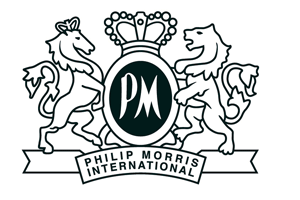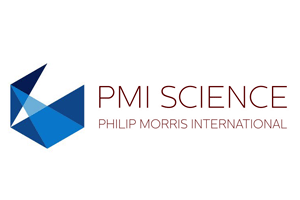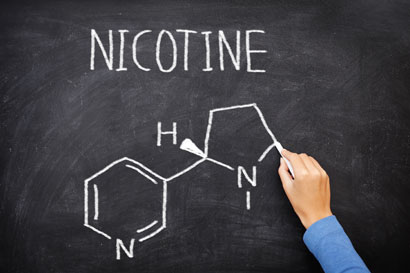Philip Morris International is due to host a live audio webcast at www.pmi.com/2018Q3earnings from 09.00 Eastern Time on October 18 to discuss its 2018 third-quarter results, which will be issued about 07.00 the same day.
During the webcast, which will be in listen-only mode, CFO Martin King will discuss the results and answer questions from the investment community and news media.
The audio webcast may be accessed also on iOS or Android devices by downloading PMI’s free Investor Relations Mobile Application at www.pmi.com/irapp.
An archived copy of the webcast and the slides and script will be available until 17.00 on November 16 at www.pmi.com/2018Q3earnings.
Tag: Switzerland

PMI to webcast results

Pressure to ratify FCTC
One hundred-and-six organizations, led by Oxy-Suisse and Action on Smoking and Health (ASH US), yesterday sent a letter to the President of the Swiss Confederation calling on Switzerland to ratify the World Health Organization’s Framework Convention on Tobacco Control (FCTC) and to change radically its relationship with tobacco companies.
In a note alerting the media to the letter, ASH US said Swiss citizens were being poisoned and killed, and the government was failing to act.
The note said the request to ratify the WHO treaty was being made during the eighth meeting of the Conference of the Parties (COP8) to the FCTC, at which delegations from 137 countries, along with representatives of United Nations agencies, other intergovernmental organizations and civil society were coming together to discuss the progress being made in tobacco control around the world.
‘This important bi-annual discussion is currently in session in Geneva, which is ironic, because Switzerland is not party to the treaty,’ the note said.
‘Switzerland’s domestic tobacco control efforts lag behind as well. The new draft tobacco product law (LPTab) in Switzerland has a goal of maintaining smoking rates in Switzerland at the current level at least until 2060, a goal which translates into deliberately preserving at current levels the associated mortality of 9,500 tobacco-related deaths per year and morbidity of over 300,000 persons seriously ill because of tobacco.
‘The Swiss government is failing its human rights and Constitutional obligations to protect the right to health and right to life of its citizens.
‘The Swiss government and the Swiss people are being held hostage by an industry that takes advantage of the system’s vulnerabilities. Which, of course, is exactly what the tobacco industry intended when they came to Switzerland in the first place – they knew that they could exploit Switzerland’s vulnerabilities to sell their deadly products and establish Switzerland as their global sanctuary.’
Switzerland’s lack of tobacco control was said to be violating the human rights not only of Swiss people but of those around the world.
‘Three major tobacco companies, Japan Tobacco International (JTI), British American Tobacco (BAT), and Philip Morris International (PMI) have large factories in Switzerland, while two of them, JTI and PMI, have their global headquarters in the country,’ the note said. ‘Executives in those offices make decisions regarding their deadly products which are marketed and sold all over the world.
‘Switzerland’s relationship with tobacco also negatively impacts its ability to become a global development agency, as tobacco is an unquestionable enemy of development.’
The 106 organizations are calling also for Switzerland to sign up to the FCTC and the new Illicit Trade Protocol, to enact tobacco control legislation compliant with WHO FCTC obligations, and to model its relationship with tobacco companies on the guidelines of the FCTC.
Juul headed for Zug
Juul Labs is preparing to set up in the Swiss city of Zug, according to a Swiss Radio International story citing yesterday’s edition of the Handelszeitung newspaper and the Zefix trade register.
The Swiss subsidiary is said to be listed on the commercial register as a producer, distributor or exporter for the retail and wholesale trade of electronic cigarettes and accessories. It is said to be managed by Jacob Bollag, according to an entry dated September 24.
The newspaper was said to have reported that Juul had filed an entry in the trademark register with the federal authorities in April.
Currently, e-cigarettes containing nicotine comprise a commodity under Swiss law and are not included within restrictions on conventional cigarettes.
However, under pending new laws, e-cigarettes would be included within a list of tobacco products that could not be sold to those under 18 years of age.
PMI on track
Philip Morris International and Scuderia Ferrari yesterday entered a new phase in their 45-year partnership with the unveiling of Mission Winnow, a new global initiative to create engagement around the role of science, technology and innovation as a powerful force for good in any industry.
The global initiative is taking to the tracks this week at the Formula 1 2018 Honda Japanese Grand Prix at Suzuka.
“Through Mission Winnow we want to let the world know how we have changed, to share our pride in the transformation that the people of PMI have achieved, as well as our dedication to rigorous science and innovation that can lead to a better future,” said André Calantzopoulos, PMI’s CEO.
“We will use this global platform as a window into the new PMI and to challenge preconceptions, as we know there are many who may have doubts about us and our motivations. Our partnership with Scuderia Ferrari gives us the opportunity to build on many encouraging individual conversations with critics and supporters alike and reach out to a broad audience to engage at scale.”
‘The word “winnow” (pronounced: “win”– “oh”) was selected because it perfectly describes the meticulous and disciplined route that PMI is following to achieve its ambitious vision of a smoke-free future,’ PMI said in a note posted on its website. ‘The word – and PMI’s vision – is about focus, transparency, care and single-minded determination.
‘”Winnow” originally referred to the removal of chaff from grain, but it came to be used more broadly to describe the separating out of the unnecessary, the extraction of the good and distinguishing what is true from what is inaccurate or misleading. For PMI, this is critically important in a world of information overload.
‘The company also believes it is critically important to adhere to an uncompromising commitment of continuous improvement through the dedicated and diligent pursuit of scientific and engineering excellence with an intense focus on details. This commitment and focus are creating a paradigm shift in the tobacco industry toward a better future.’
“Mission Winnow encapsulates our commitment to strive for better in everything we do,” said Calantzopoulos. “To winnow, or to discard old approaches, is what we at PMI are doing – we take learnings from past mistakes to shape our future.”
PMI said in its note that, in driving toward the future, it had chosen a path that was in all aspects very complex and faced many challenges. Like Scuderia Ferrari, the company had set a course forward, and there was no turning back: PMI had to progress constantly and rapidly, examining and analyzing the way ahead by learning every day and adjusting to improve at the next corner.
“Mission Winnow is about how we are transforming as a company, what we believe in and the way we work to enable a better future,” said Miroslaw Zielinski, president science and innovation at PMI. “Scuderia Ferrari is the ideal partner for Mission Winnow because of the team’s passion for innovation and drive to constantly improve in the quest for victory.
“We are launching Mission Winnow in the F1 circuit because motorsport fans understand there is no reverse gear in racing, only forward thinking and we believe they will want to share this vision.”
PMI said that Mission Winnow provided an insider’s view of two companies that operated in very different fields but had a great deal in common. ‘For both companies, success hinges on the passion of their people for the highest standards of performance in pursuit of overarching ambitions,’ it said. ‘Mission Winnow does not and will never advertise or promote any tobacco products. Mission Winnow is not about what, it is about how and why.
More information on Mission Winnow is at: www.missionwinnow.com or @missionwinnow on Facebook, Instagram and Twitter.
Innovation the key
Philip Morris International has said that, given the right conditions, it could stop selling combustible cigarettes in less than a century.
PMI yesterday published a position paper giving its views on the eighth session of the Conference of Parties (COP8) to the World Health Organization Framework Convention of Tobacco Control (FCTC).
‘With more than one billion people expected to be smoking in 2025, PMI is urging the WHO, the hundreds of delegates convening in Geneva this week, and the wider public health community to embrace the potential of innovative alternatives to cigarettes in order to achieve the UN’s sustainable development goals for non-communicable diseases as quickly as possible,’ PMI said.
PMI acknowledged that smoking prevalence was in decline but argued that the pace of that decline could be much faster.
‘The landscape of tobacco and nicotine products has evolved significantly over recent years,’ the company said. ‘Not all tobacco products are the same with respect to their health risks. Moreover, rapid innovation offers opportunities to accelerate the downward trajectory of smoking prevalence.’
PMI said that, ultimately, it aimed to stop selling cigarettes entirely and was confident that this could happen in less than a century if smokers who would otherwise continue to smoke were proactively encouraged to switch to less harmful alternatives, which already exist but were either not well known or in some cases restricted.
‘Where these products have been adopted, for instance, in countries such as Japan and the UK, there have been unprecedented declines in cigarette sales,’ PMI said. Progress in these countries signals the potential for great change across the globe and is the core reason why PMI has publicly committed its future to being smoke-free, and continues to develop new science-based technologies and innovations that offer better alternatives to men and women who would otherwise continue to smoke.’
PMI’s policy-making recommendations published yesterday include:- Policies must continue to dissuade minors, ex-smokers, and non-smokers from using tobacco- and nicotine-containing products, while making better alternatives to cigarettes available to adults who smoke.
- Tobacco control policies should encompass tobacco-harm reduction strategies as well as supply and demand measures that encourage smokers who would otherwise continue to smoke to switch to better alternatives.
- There should be thorough, independent verification of manufacturers’ products and science to assess how ENDS [electronic nicotine delivery systems] and novel and emerging tobacco and nicotine products can support policies to reduce smoking prevalence.
- There should be national and global surveillance systems to study market trends. This surveillance should include data on product usage, including switching rates associated with different tobacco and nicotine products, to enable accurate reporting of smoking prevalence and the use of ENDS and novel and emerging tobacco products.
- Incentives should encourage investment and continuous research and development of less harmful alternatives, including the establishment of quality and performance standards for smoke-free products.
- Mechanisms should be established to enable transparent interaction and consultation between governments and producers of emerging tobacco and nicotine products.
The policy paper is at: https://www.pmi.com/resources/docs/default-source/newsroom/pmi-cop-position-statement.pdf?sfvrsn=41ff9cb5_10.

Shame about the venue
The fact that Switzerland has not ratified the World Health Organization’s Framework Convention on Tobacco Control (FCTC) but is hosting its conference is shameful, according to a story at swissinfor.ch quoting a top WHO official.
“I think this is more of a shame than a problem that Switzerland is not party to the treaty, as this is all about protecting the public health of the population,” the head of the FCTC Secretariat, Vera Luiza da Costa e Silva, reportedly told reporters at the United Nations headquarters in Geneva on Friday.
State representatives, experts and other officials are meeting in Geneva this week for the eighth meeting of the Conference of the Parties to the FCTC.
Switzerland signed the FCTC in 2004 but has not ratified it, partly due to recent changes to a draft law on tobacco products and specific issues related to advertising and sponsorship.
But it is not alone. Other countries, mainly tobacco-growing states, such as the US, Argentina, Malawi and Cuba, have not ratified the FCTC.
Da Costa e Silva said there was not enough political will in Switzerland to apply all measures in the treaty in the face of the tobacco industry present in the country.
About 180 states are set to attend COP8, followed by the first session of the Meeting of the Parties (MOP1) to the Protocol to Eliminate Illicit Trade in Tobacco Products (October 8-10).
The second conference is due to discuss, among other issues, global, regional and national systems to track tobacco products from the production site to the initial sales site, which is due to be launched by 2023.
A Swiss solution
Swiss producers of electronic cigarettes and several retail outlets that sell such products have agreed to a voluntary ban on their sale to minors until a law-change comes into effect, according to a story at swissinfo.ch.
The code of conduct produced by the consortium of tobacco manufacturers and large retailers will go into force on October 1.
About 38 companies had previously signed up to an earlier charter initiated by the Swiss Vape Trade Association, which also seeks to prevent minors obtaining such products.
The signatories of the latest agreement have undertaken not to sell any e-cigarette devices or liquids that can be vaporised to persons under the age of 18.
The Federal Food Safety and Veterinary Office welcomed the decision, saying it would better safeguard the health of youngsters.
In April, Switzerland’s Federal Administrative Court overturned a ban on sales of electronic cigarettes with nicotine. The court accepted the argument that such products are freely sold in the EU.
Currently, e-cigarettes containing nicotine are considered a commodity under Swiss law and are not included within restrictions on conventional cigarettes. However, pending new laws would include e-cigarettes under a list of tobacco products that should not be sold or marketed to under-18s.
PMI investor day scheduled
Philip Morris International is due to host a live audio webcast at www.pmi.com/2018InvestorDay of presentations and a Q&A session by senior management at its 2018 Investor Day, which will be held at its Operations Center in Lausanne, Switzerland, on September 27.
The presentations and Q&A session will be webcast live in a listen-only mode beginning about 08.55 Central European Time and ending about 17.00.
A copy of the slides and full transcript will be made available at www.pmi.com/2018InvestorDay.
The audio webcast may be accessed also on iOS or Android devices by downloading PMI’s free Investor Relations Mobile Application at www.pmi.com/irapp.
An archive of the webcast will be available until October 26.
Law change logical
In launching last week in Switzerland Logic Pro, a nicotine-containing electronic cigarette, Japan Tobacco International became the first international company to introduce such an e-cigarette, according to a note posted on the company’s website.
The launch was said to have followed the Federal Administrative Court’s decision on April 24 to lift Switzerland’s ban on the sale of e-cigarettes containing nicotine.
‘Logic Pro comes one year after the success of PLOOM TECH, its [JTI’s] tobacco-infused vapor product that heats tobacco at very low temperatures without combustion,’ the company said.
‘With Logic Pro, JTI widens its reduced risk products portfolio in Switzerland to satisfy consumer demand for e-cigarettes.
‘Logic Pro is a closed-tank electronic vapor device which heats a nicotine-containing liquid to produce an inhalable vapor. Its replaceable capsules come in five flavors – regular, menthol, cherry, berry mint and vanilla – and two different strengths. E-liquids for Logic Pro capsules are made in Europe in line with strict international quality standards, and use food flavoring agents, pharmacopeial nicotine, propylene glycol, and vegetable glycerin. All of this comes together in one sleek, convenient and satisfying vape.’
“Vapers today are looking for a superior and easy vaping experience,” said John Aurlund, JTI’s GM in Switzerland. “Thanks to the combination of its Europe-made e-liquid and first-class hardware, Logic PRO gives users a quality vapor with an enjoyable taste. With Logic, already the number one e-cigarette in several European countries, we can now meet a growing consumer need in Switzerland. We’re happy the new regulatory environment allows for more consumer choice in the country.”
Logic is an American brand of electronic cigarettes acquired by JTI in 2015.
The company said that it was a leading brand in major e-cigarette markets. It was the number one e-vapor brand in Ireland and the number one closed-tank e-vapor device in France, Italy and the UK.
‘In the UK, Logic Pro was voted the 2018 E-Cigarette of the Year, recognizing JTI’s dedication to the consumer,’ JTI said. ‘Already the number three global leader in the e-cigarette category, Logic is currently sold in 11 major e-cigarette markets.’
JTI said that Logic would be made available across Switzerland in independent trade and kiosk stores. The device would retail for CHF19,90, with refill packs of three capsules available for CHF5,90.
PMI's volume increased
Philip Morris International’s cigarette shipment volume during the second quarter to the end of June, at 190,721 million, was down by 1.5 per cent on that of the second quarter of 2017, 193,540 million.
Volume increased by 6.6 percent to 44,788 million in its South and Southeast Asia region and by 5.7 percent to 34,177 million in its Middle East and Africa region. But volume was down in each of its other regions: by 3.6 percent to 47,894 million in the EU; by 4.3 percent to 15,114 million in East Asia and Australia; by 6.3 percent to 20,204 million in Latin America and Canada; and by 11.3 percent to 28,454 million in Eastern Europe.
Cigarette shipments of Marlboro were up by 0.1 percent to 68,893 million, while those of L&M where down by 0.7 percent to 23,196 million. Cigarette shipments of Chesterfield rose by 9.3 percent to 14,926 million; those of Philip Morris fell by 1.3 percent to 12,523 million; those of Sampoerna A fell by 4.2 percent to 10,174 million; those of Parliament fell by 1.6 percent to 10,993 million, those of Bond Street fell by 18.4 percent to 8,390 million; those of Dji Sam Soe rose by 43.0 percent to 6,877 million; those of Lark rose by 3.8 percent to 5,904 million; and those of Fortune rose by 21.2 percent to 4,155 million. Shipments of other cigarette brands fell by 14.9 percent to 24,690 million.
The 2018 second-quarter overall decline in cigarette shipments was more than offset by an increase in sales of heated-tobacco units (HTUs); so total sales of cigarettes and HTUs increased by 0.9 percent to 201,708 million from those of the second-quarter of 2017.
Shipments of HTUs during the three months to the end of June, at 10,987 million, were up by 73.0 percent on those of the three months to the end of June 2017, 6,350 million.
Shipments of HTUs were increased in all the regions where they are sold: in the EU from 392 million to 1,195 million; in Eastern Europe from 117 million to 951 million; in the Middle East and Africa from 112 million to 971 million; in East Asia and Australia from 5,726 million to 7,838 million; and in Latin America and Canada from three million to 32 million.
PMI reported also that its shipment volume of cigarettes during the six months to the end of June, at 355,001 million, was down by 3.3 percent on that of the six months to the end of June 2017, 367,092.
At the same time, shipments of HTUs were up by 90.6 percent to 20,553 million, while its total cigarettes and HTUs volume was down by 0.6 percent to 375,554 million.
Reported and adjusted diluted earnings per share during the second quarter, at $1.41, were increased by 23.7 percent on those of the second quarter of 2017, $1.14.
Net revenues were up by 11.7 percent to $7.7 billion.
“Our second-quarter earnings highlight the fundamental strength of our business, with positive total volume growth, currency-neutral net revenue growth of more than eight percent, driven by higher pricing from our combustible product portfolio, and close to double-digit growth in ex-currency operating income,” said CEO André Calantzopoulos (pictured).
“We are seeing encouraging improvement in the markets we previously cited as challenging, with a sequential recovery of volume in the GCC and an improving pricing environment in Russia.
“Reflecting better execution, our heated tobacco portfolio across IQOS launch geographies is performing well, notably in key markets such as the EU. We are implementing the right marketing and product measures to reinvigorate growth in Japan, which is undoubtedly well below our initial expectation this year. These initiatives, which require the rightsizing this year of existing IQOS device and consumable inventories, will position PMI well for a strong overall performance in 2019.
“Our revised 2018 EPS guidance reflects this decision, as well as the shift in previously positive currency to a headwind for the full year. Partially offsetting these impacts is the benefit of a further reduction of our effective tax rate.
“As demonstrated by our dividend increase of 6.5 percent last month, we remain confident in our long-term growth prospects, underpinned by the strength of our combustible portfolio and the proven potential of our smoke-free alternatives.”








